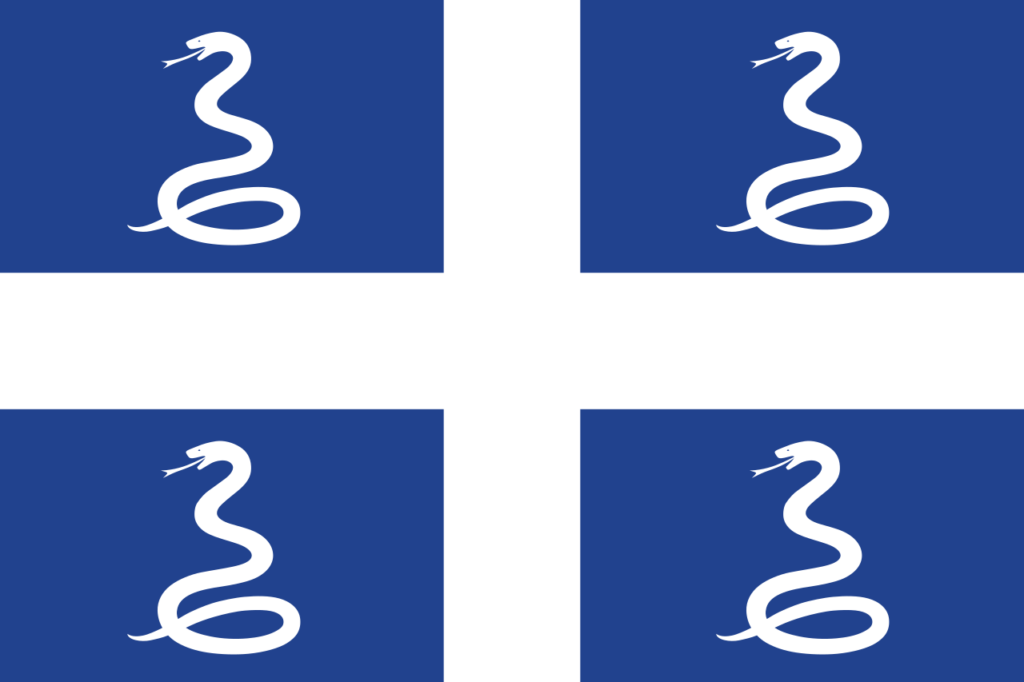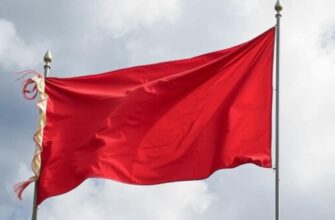Martinique, a Caribbean island that has long belonged to France, has managed to maintain its identity — its unofficial flag is considered one of the most original in the world.
This is what the modern flag of Martinique looks like:

History of the flag
The official flag of Martinique, one of the French overseas territories located in the Caribbean Sea, is the French tricolor. However, it is not the tricolor that is of interest, but another symbol of the state, which is considered historic. It was adopted back in 1766. It is similar to the maritime pennant of the country at that time.
Since 1664 the island is a colony, and since 1946 has the status of an overseas department of France.
Description
Is a cross on a single-colored background, which divides the background into four equal parts, each of which is a snake, resembling the letter L.
Flag colors
Blue and white.
Meaning of colors and flag symbol
The reason for the use of colors is not known reliably, so it is worth interpreting them on the basis of the basic laws of heraldry.
- Blue — love for the Motherland, loyalty and greatness, as well as a symbol of the great water in which the territory is located.
- White — purity and nobility.
- The letter L is from the name Saint Lucia — Martinique was ruled from this island until 1803.
- The locals believe that the snakes are an image of the rattlesnakes that inhabit these parts.
The symbol, created several centuries ago, is unlike others, which is attractive to many connoisseurs and connoisseurs of vexillology — the science of flags.
General information about Martinique
| Official language | French (official), patois is a spoken language based on French and African languages with borrowings from English, Spanish, and Portuguese. |
| Capital | Fort de France |
| Territory | 1128 km2 |
| Population | 392 291 people |
| Currency | Euro |
| Phone Code |










I remember the first time I saw the Flag of Martinique at a cultural festival. Its vibrant colors and the serpent really caught my eye! It made me curious about the island’s history. I love how flags tell such rich stories about a place and its people!
I absolutely love the Flag of Martinique! It’s so vibrant and unique! I remember visiting the island and feeling the energy of its culture. The design is just stunning, and it really represents the spirit of the people. Can’t wait to go back and explore more!